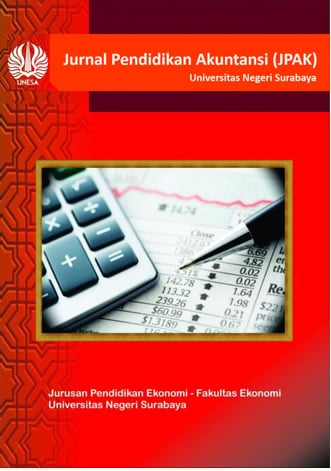Pengaruh Sikap Keuangan, Locus of control, Teman Sebaya terhadap Perilaku Pengelolaan Keuangan dengan Literasi Keuangan sebagai Variabel Mediasi
DOI:
https://doi.org/10.26740/jpak.v10n3.p257-266Keywords:
Financial attitude; locus of control; peers; financial management behavior; financial literacyAbstract
The research conducted purpose to analyze the effect of financial attitudes, locus of control, peers on financial management behavior through financial literacy, either directly or indirectly. The population used was 158 students of the 2017 and 2018 Accounting Education Study Program, Faculty of Economics and Business, Surabaya State University. Purposive samples are used in sampling. Collecting data using questionnaires, data processing is carried out with data instrument tests, classical assumptions, regression analysis and path analysis which is processed through the IBM SPSS version 25 application. Getting results, namely: (1) financial attitudes, locus of control, and peers have a direct effect on financial management behavior (2) financial attitudes, locus of control, and peers have an indirect effect on financial literacy (3) Financial literacy has an indirect effect on financial management behavior (4) financial literacy is a mediating variable on financial attitudes, locus of control, and peers with financial management behavior. The advice given is that students are expected to make records of all activities regarding their finances in order to create good financial management behavior.
Downloads
Downloads
Published
How to Cite
Issue
Section
License
Authors who publish with this journal agree to the following terms:
- Authors retain copyright and grant the journal right of first publication with the work simultaneously licensed under a Creative Commons Attribution License that allows others to share the work with an acknowledgement of the work's authorship and initial publication in this journal.
- Authors are able to enter into separate, additional contractual arrangements for the non-exclusive distribution of the journal's published version of the work (e.g., post it to an institutional repository or publish it in a book), with an acknowledgement of its initial publication in this journal.
- Authors are permitted and encouraged to post their work online (e.g., in institutional repositories or on their website) prior to and during the submission process, as it can lead to productive exchanges, as well as earlier and greater citation of published work (See The Effect of Open Access).

Jurnal Pendidikan Akuntansi (JPAK) is licensed under a Creative Commons Attribution-NonCommercial 4.0 International License.
 Abstract views: 2351
,
Abstract views: 2351
, PDF Downloads: 2307
PDF Downloads: 2307



